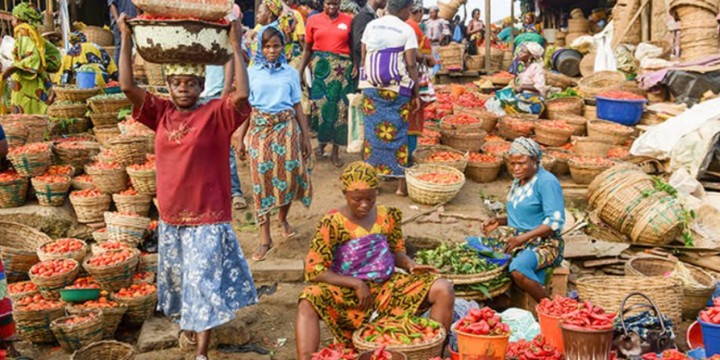As Christmas draws near, Nigerians are feeling the pressure of rising food prices. A recent report from the National Bureau of Statistics (NBS) revealed that in November 2024, Abuja and 19 other states recorded food inflation rates above 40%. This sharp rise in food prices is adding to the financial strain on many families across the country.
In November, the food inflation rate reached 39.93%, up from 32.84% in the same month last year. Key food items like yam, rice, maize, and palm oil have become significantly more expensive, with other foods like guinea corn, millet, and meat also seeing price increases. These hikes in food prices are making it harder for Nigerians to afford basic necessities.
On a month-to-month basis, food inflation rose by 2.98% in November, slightly up from the 2.94% in October. This increase is mainly due to rising costs of items such as fish, rice, and dairy products. The year-to-date average food inflation rate stands at 38.67%, a notable rise from 27.09% last year.
Sokoto, Yobe, Edo, Gombe, Kebbi, Abia, Zamfara, Anambra, Kano, and Oyo are the states most affected by food inflation, with rates exceeding 40%. Sokoto has the highest inflation at 51.3%, followed closely by Yobe at 49.69%. Other states like Abia and Zamfara have seen their inflation rates climb to over 46%, making food even less affordable for residents.
Although some states, like Jigawa and Borno, have seen slight decreases in food inflation, the overall trend remains worrying. Rising transportation costs, insecurity, and disruptions in supply chains are continuing to push prices higher, leaving households vulnerable.
With the holiday season approaching, the rising cost of food is a significant concern. The increases are due to a combination of supply chain issues, higher fuel prices, and increased demand for food. The overall inflation rate for Nigeria also climbed to 34.60% in November, up from 33.88% in October, further showing the strain on Nigerians’ wallets.
For many families, the festive season will be marked by financial challenges as food prices continue to rise. It remains to be seen whether the government can address these issues in time to ease the burden on households.







